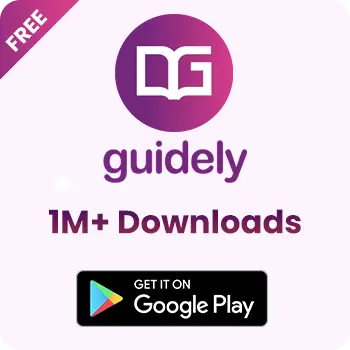Types of Negotiable Instruments PDF: Check Its Characteristics with the Act Amendment and Essential Factors
Jun 05 2025
Negotiable instruments are written agreements that guarantee a particular amount of money, either upon request or at a designated time, and can be easily transferred to new owners. They are essential financial tools for enabling transactions and encompass items such as checks, promissory notes, and bills of exchange.
According to Section 13 of the Act, “Negotiable instrument means a promissory note, bill of exchange or cheque payable either to order or to bearer, whether the word 'order' or “bearer” appears on the instrument or not”.
Negotiable instruments types are property that can be obtained by anyone who acquires it in good faith and for value, regardless of any title defects in the individual from whom it was obtained. In 1881, India passed legislation known as The Negotiable Instruments Act, which was applicable in India, and the current act is also derived from the English Act with specific modifications.
Negotiable Instruments Types PDF Download
Characteristics of the Negotiable Instruments Types
The Characteristics of the Negotiable Instruments Act are as follows:,
- Easy Transferrable - The property in a negotiable instrument is transferred by mere delivery, if the instrument is payable to the bearer, by delivery indorsement if payable to the order.
- The transferee’s title is free from all defects - The transferee who takes it bona fide for value and before maturity gets a good even if the transferor's title was defective.
- Transferee can sue his name - A transferee of the negotiable instrument can sue in his name, in case of dishonor.
- Prompt payment - A negotiable instrument enables the holder to expect prompt payment because a dishonor means the ruin of the credit of all persons who are parties to the instrument.
- Notice of transfer not necessary - The transferee is not required to give notice of transfer to the person liable to pay the instrument.
Examples of Negotiable Instruments Types PDF
According to section 13, the examples of negotiable instrument types are given below;
-
Bank Checks
-
Promissory notes
-
Certificates of Deposits
-
Bills of exchange
-
Money Order
-
Traveler’s Check
Negotiable instruments types
There are many types of negotiable instruments. The most common negotiable instruments are;
-
Personal checks
-
Travelers Checks
-
Money Order
-
Promissory Notes
-
Certificate of Deposit (CD)
Computer Awareness Bundle PDF Course
Personal Checks
-
A personal check is a means that promises to pay a specific amount of money to a person or entity.
-
Personal checks are signed and authorized by someone who deposited money with the bank and specifies the amount required to be paid.
-
While technology has led to an increase in the popularity of online banking, checks are still used to pay a variety of bills.
-
Personal checks are generally handwritten, but printed checks are being used more for personal use as well.
Traveler’s Checks
-
Traveler’s checks are another type of negotiable instrument intended to be used as a form of payment by people on vacation in foreign countries as an alternative to foreign currency.
-
Financial institutions issue traveler’s checks with serial numbers and in prepaid fixed amounts.
-
With traveler’s checks, purchasers do not have to worry about carrying large amounts of foreign currency while on vacation.
-
Courts have variously described traveler's checks as certificates of deposit, negotiable instruments, securities, cash, and cashier’s checks.
Money Order
-
Money orders are like cheques in that they promise to pay an amount to the holder of the order.
-
It is issued by financial institutions and governments. Money orders are widely available but differ.
-
Money orders contain relatively little personal information compared to checks with just the names and addresses of the sender and recipients and not any personal account information.
-
International money orders are also a popular way of sending money abroad nowadays, since money orders do not need to be cashed in the country of issuance.
Promissory Notes
-
A promissory note is a financial instrument that contains a written and signed promise between two parties to repay a sum of money in exchange for a loan or other financing.
-
A promissory note typically contains all the terms about the indebtedness, such as the principal amount, interest rate, maturity date, date and place of issuance, and issuer's signature.
-
In terms of their legal enforceability, promissory notes lie somewhere between the informality of an IOU and the rigidity of a loan contract.
-
There is no limit on the borrowing amount for a promissory note.
Certificate Of Deposit
-
A certificate of deposit is a short-term negotiable debt instrument that promises to pay the bearer or registered owner an amount or number of amounts in the future.
-
Certificates of deposits are negotiable money market instruments issued in demat form or as Usance Promissory Notes.
-
The government initiated the market for CDs to widen the range of money market instruments and to provide higher flexibility to investors for investing their surplus money in the short term.
-
A certificate of deposit is a savings account that holds a fixed amount of money for a fixed period, such as six months, one year, or five years.
Negotiable Instruments Act Amendment 2018 PDF
-
In 2018, the central government added two sections, namely 143a and 148, to the Negotiable Instruments Act of 1881.
-
The insertion of such new provisions in the NI Act is a welcome step aimed at addressing the issue of undue delay.
-
This amendment has been constructive for cheque bouncing and has reduced those types of cases.
-
It also introduces substantial changes to the Negotiable Instruments Act of 1881.
Essential Factors of Negotiable Instruments Types
The essential factors of negotiable instruments are some unique features that are;
-
Transferability - It emphasizes the free transferability of the instrument from one party to another.
-
Rights to the holder - The Act provides rights and protections to the holder of the instrument.
-
Legal Redress - It provides a legal mechanism to seek redress in case of dishonor of the instrument.
-
Presumptions - The Act assumes certain presumptions regarding negotiable instruments.
Relevance of negotiable instrument types
The contents under the topic of negotiable instruments types deal with all the provisions of the instruments that are a crucial part of modern-day commercial transactions due to development in the banking, trading, and other commercial transactions development in the banking, trading, and other commercial sectors.
Negotiable Instruments Types - FAQ's
Q. What are the commonly used negotiable instruments?
The commonly used negotiable instruments are
Personal Checks, Cashier’s Checks, Money Orders, Certificates of deposit (CDs), Promissory notes, Traveler’s checks
Q. What is a negotiable instrument?
A negotiable instrument is a written document that creates a right in favor of a person and is freely transferable. Which is considered an unconditional promise or order to pay a fixed amount of money.
Q. Which section of the Negotiable Instruments Act defines promissory notes?
The promissory notes are defined as an instrument according to section 4 of the Negotiable Instruments Act.
Q. What is a non-negotiable instrument?
A non-negotiable instrument, also known as a non-marketable instrument, is something that cannot be transferred from one party to another. Non-negotiable instruments are set in stone and cannot be changed in any way.
Q. What are the elements of negotiable instruments?
There are 4 elements of negotiable instruments they are.,
Unconditional promise or order to pay, Fixed amount of money, Payable on demand or at a specific time, Payable to a particular person or their order, or the bearer.
Q. What is a promissory note?
A promissory note is a written promise by one party to pay a definite sum to another party at a fixed or determinable future time.
Q. What is a bill of exchange?
A bill of exchange is a written order by one party to another to pay a certain sum to a third party.
Q. What is a cheque?
A cheque is a bill of exchange drawn on a specified banker and payable on demand.
Q. What is the penalty under Section 138?
Imprisonment up to 2 years, or a fine up to twice the cheque amount, or both.
Q. What is a stale cheque?
A cheque becomes stale after 3 months from its date and cannot be presented for payment.
General Awareness Smart Analysis (Smart Quiz 2.0)
- Get Weekly 4 set Test
- Each Set consist of 50 Questions
- Compare your progress with Test 1 & 2 & Test 3 & 4
- Deep Analysis in topic wise questions
Super Plan
- All Banking PDF Course 2026, 2025, 2024
- All Banking Video Course
- All Banking Mock Test Series
- All Banking Bundle PDF Courses
- All Banking Ebooks
- All Banking Interview Courses Not Included
Premium PDF Course
- Bundle PDF Course 2025
- Premium PDF Course 2024
- Prime PDF Course 2023






